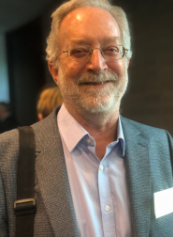Editorial Team
Editor-in-Chief
Graham Pawelec
University of Tübingen, Germany
Graham Pawelec received an MA in Natural Sciences and a PhD in Transplantation Immunology from the University of Cambridge, UK. He is currently Professor of Experimental Immunology in the Department of Immunology, University of Tübingen, Tübingen, Germany and is an Affiliated Scientist at the Health Sciences North Research Institute of Canada, Sudbury, ON, Canada. He was a Visiting Professor at Nottingham Trent University, UK and at King´s College London, UK, and held an Honorary Chair at Manchester University, UK. He is a Fellow of the Gerontological Society of America, and is a member of the Scientific Advisory Board for the XPRIZE Healthspan and several other non-profits. Research interests are centred on how ageing affects human immune function and influences the outcome of vaccination and immunotherapy, and how immunosenescence impacts human health and longevity.
Co-Editor-in-Chief
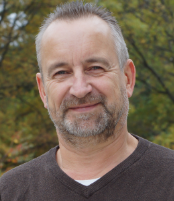
Per thor Straten
University of Copenhagen, Denmark
Per thor Straten – currently Professor at University of Copenhagen and vice-director at National Center for Cancer Immune Therapy, University Hospital Herlev (https://www.herlevhospital.dk/ccit-denmark/Sider/default.aspx). Main research portfolio lies in cancer immunology with a focus on T and NK cell regulation and in exercise immunology/oncology. To the former, we study the role of TAM (Tyro, Axl and Mer) in T cell function and cancer cell escape from immune recognition. To the latter we currently run a clinical trial in exercise in patients with lung cancer, and also study chronic adrenalin/nor-adrenalin signaling on cells of the immune system.
Associate Editors
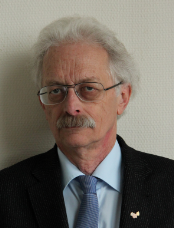
Hans-Georg Rammensee
University of Tübingen, Germany
Hans-Georg Rammensee took up his studies of biology at the Eberhard Karls University in Tübingen in 1974. In 1982 he completed his PhD (Dr. rer.nat.) at the Max Planck Institute for Biology in Tübingen in the group of Professor Dr. Jan Klein. Following his postdoctoral studies at the Scripps Institute in La Jolla and at the Basel Institute of Immunology, Professor Rammensee again joined the Max Planck Institute for Biology where he was group leader of the laboratory of immunology from 1987 to 1993. During this time, Professor Rammensee also assumed teaching responsibilities at the University of Tübingen. From 1993 to 1996 Professor Rammensee was Head of the Department of Tumor-Virus Immunology in the German Cancer Research Center (DKFZ), and was also Professor at the University of Heidelberg. He is currently Professor of Immunology and head of the Department of Immunology, University of Tübingen, and co-chair of the cluster of Excellence iFIT, CoE 2180, in Tübingen. Research interests are T cell biology, antigen presentation, HLA function, virus and cancer immunology, with particular emphasis on peptide vaccination.
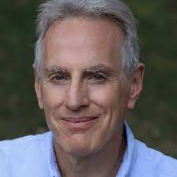
Jonathan Chernoff
Fox Chase Cancer Center,USA
Jonathan Chernoff received an MD and PhD in Biochemistry from Mt Sinai School of Medicine in New York, NY. He is currently Director of the Fox Chase Cancer Center and the holder of the Stanley P. Reimann Chair in Oncology Research at that institution. Dr. Chernoff has devoted his research career to understanding how cells receive and interpret signals, and how this process is corrupted in cancer. In particular, he has focused on the regulation of signal transduction by phosphorylation, with an overarching goal to understand the mechanisms underlying how signal transduction pathways are rewired in cancer, and their implications for the development, spread, and resistance of solid tumors to therapy.
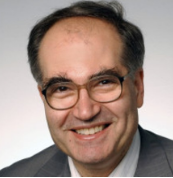
Tamas Fulop
Université de Sherbrooke, Canada
Tamas Fulop received an MD from the University of Geneva and a PhD in Biochemistry and Immunology from the Hungarian Academy of Sciences followed by a Post doctoral training in Biochemistry at the CNRS at Paris XII. He is currently a Professor in Internal Medicine-Geriatrics at the Department of Medicine of the Université de Sherbrooke and Senior researcher at Research Center on Aging. He is leading the Oncogeriatric outpatients’ clinics. His research since many years is focused on immune changes with aging and on the concomitant inflammaging. He is specifically interested in the mechanisms leading to the changes in immune cells functions with aging and in age-associated diseases. He is Editor-in-Chief of Gerontology. He is a Fellow of the Canadian Academy of Health Sciences.
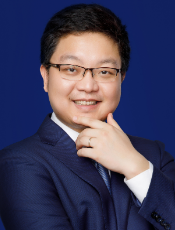
Runze Li
The Second Affiliated Hospital of Guangzhou University of Chinese Medicine, China
Li Runze, Researcher and Doctoral Supervisor of Guangdong Provincial Hospital of Traditional Chinese Medicine, received his Ph.D in Integrated Chinese and Western Medicine from Macau University of Science and Technology after initial training at the Beijing University of Chinese Medicine. He was an Assistant Professor at Macau University of Science and Technology before moving to Guangdong. He is a Member of the Specialty Committee on Immunology of Traditional Chinese Medicine of the World Federation of Chinese Medicine Societies, an Executive Committee member of Macau Society of Clinical Oncology, a Member of Chinese Anti-Cancer Association and a member of the Chinese Medicine Health Care Products Professional Committee of the World Federation of Chinese Medicine. His main research interests are basic and clinical research on innovative anti-tumor drugs by integrating traditional Chinese and Western medicine.
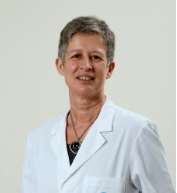
Federica Cavallo
University of Turin,Italy
Federica Cavallo (ORCID 0000-0003-4571-1060; Scopus Author ID 34568031100) is a Full Professor of Immunology at the University of Turin, Medical School, and carries out her research activities at the Department of Molecular Biotechnology and Health Sciences. She has over 30 years of experience in the fields of tumor immunology, translational cancer immunotherapy, and comparative oncology. She graduated in Biological Sciences at the University of Turin studying the interactions between tumors and the immune system. She obtained a Ph.D. in Tumor Immunology from the same institution, studying the role of cytokines in the immune recognition of tumors. She made important contributions to the field of cancer immune prevention and adjuvant therapy, with an emphasis on vaccines targeting antigens that play a non-dispensable role in cancer cells (oncoantigens).
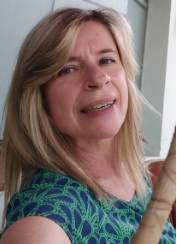
Valquiria Bueno
UNIFESP Federal University of São Paulo, Brazil
Valquiria Bueno received her PhD in Transplantation Immunology from UNIFESP, Brazil, followed by postdoctoral training in Transplantation Immunology at the University of Oxford, UK. She is currently Professor of Clinical and Experimental Immunology in the Division of Immunology, Department of Microbiology Immunology and Parasitology DMIP, UNIFESP Federal University of São Paulo, and is Head of the Laboratory of Immunosenescence at UNIFESP. Her research interests are focused on how ageing affects metabolism and immune function in a manner impacting on cancer development and response to therapies, and how immunosenescence influences the longevity and functionality of the whole organism.
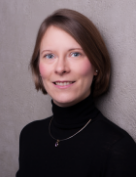
Nina Rosa Neuendorff
University Duisburg-Essen,Germany
Nina Rosa Neuendorff is an internist and hematologist with specific interest in older adults with hematological malignancies. Currently, she works as a staff hematologist and physician scientist at the University Hospital in Essen (Germany). Before getting into medicine, she studied piano in Cologne and at the Mozarteum (Salzburg, Austria). Afterwards, she obtained her medical degree from the University of Marburg, spending her subinternships at the Memorial Sloan-Kettering Cancer Center in New York and Sheffield University Hospital, UK. For her MD thesis, she worked on chromatin remodeling complexes in the lab of Prof. Alexander Brehm at the Institute of Molecular Biology and Tumor Research (IMT) in Marburg. She received her internal medicine training at the Charité University Hospital in Berlin followed by a Fellowship in hematology/oncology at Heidelberg University Hospital. She is especially interested in the compensation of comorbidities and toxicities in older adults with leukemia as well as integrating clonal hematopoiesis of indeterminate potential into survivorship concepts for older adults with cancer. She currently serves as member of the Young International Society for Geriatric Oncology Governance.
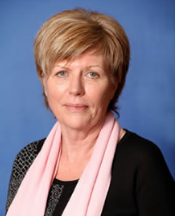
Delia Nelson
Curtin University, Australia
Dr. Delia Nelson is currently a Research Academic/Associate Professor with the School of Medicine, Curtin University. She received a BSc in 1986, an Honours degree in 1987 and a PhD in 1995 from the University of Western Australia (UWA) looking at the role of dendritic cells in childhood asthma. She examined the relationship between the immune system and cancer as an independent Senior Research Officer, in the Department of Medicine, UWA. Her research interests include understanding how innate and adaptive immunity interact in the presence of progressing tumours, the impact that ageing has on these processes, as well as the impact of standard chemotherapy, immunotherapies, gene therapies and/or vascular targeting therapies on these processes. She has 86 publications with an H-index of 27 (Scopus).
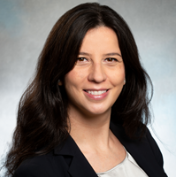
Giada Bianchi
Brigham and Women’s Hospital Harvard Medical School, USA
Dr. Bianchi is a physician-scientist and associate physician with the Hematology Division of the Brigham and Women’s Hospital, Boston, MA. She is Associate Director of the Amyloidosis Program at Brigham and Women’s Hospital/Dana Farber Cancer Institute and Assistant Professor at Harvard Medical School, Boston, MA. Dr. Bianchi earned her MD degree summa cum laude from Vita-Salute San Raffaele University in Milan, Italy. She trained in Internal Medicine at the Mayo Clinic, Rochester, MN and in Hematology-Oncology at Dana Farber Partners program in Boston, MA. The research interest of the Bianchi lab is to discover the mechanisms regulating protein homeostasis in physiologic and pathologic states of plasma cell differentiation and the role that proteostasis plays in determining plasma cell fate. The overall vision of the lab is to build a strong mechanistic foundation for the development of innovative, early phase clinical trials targeting plasma cell disorders AL amyloidosis and multiple myeloma as well as the progression of precursor diseases monoclonal gammopathy of undetermined significance (MGUS) and smoldering multiple myeloma (SMM). Dr. Bianchi is the recipient of numerous awards, including the Damon Runyon Physician Scientist Training Award, 2016; the Doris Duke Charitable Research Foundation Clinical Scientist Development Award, 2019, the American Society for Clinical Investigation (ASCI) Young Physician-Scientist Award, 2021 and the American Society of Hematology Scholar Award, 2022.
Editorial Board Members
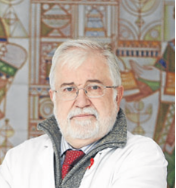
Rafael Solana
University of Cordoba, Spain
Rafael Solana is Professor of Immunology at the University of Cordoba. From 2010 he is also Coordinator of the Immunology and Inflammation Section of the Instituto Maimonides de Investigacion Biomedica de Cordoba (IMIBIC). He has been elected member of the Spanish Society of Immunology Board (2008-12). His main research interest is the cellular and molecular study of T and NK cell immunosenescence, focusing on the expression and function of NK cell receptors in ageing, viral infection and cancer. He has more than 120 publications on the field, has supervised 18 PhD theses, has coordinated 18 national research projects, has participated in 4 European Research Projects and has organized several international meetings and workshops on topics related to immunosenescence.
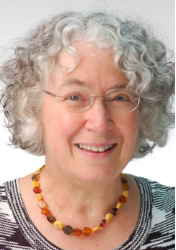
Suzanne Ostrand-Rosenberg
University of Utah, University of Maryland Baltimore County (UMBC), USA
Dr. Ostrand-Rosenberg has more than 40 years of experience as the PI of a laboratory studying the immune system’s response to malignancies. Her lab’s long-term goal is to manipulate an individual's immune response to reject cancer cells. Early studies demonstrated that CD4+ T-helper lymphocytes are an important component for immune-mediated tumor rejection. Subsequent studies identified myeloid-derived suppressor cells (MDSCs) as a major obstacle to efficacious cancer immunotherapies. Her lab discovered that inflammation and stress are the key driving forces for the induction of MDSC and are the basis for the concept that chronic inflammation increases cancer risk and progression by inducing MDSCs. In addition to studying MDSCs in cancer, her lab has investigated MDSCs in obesity and pregnancy, and her lab has developed two therapeutics that simultaneously activate tumor-reactive CD4+ and CD8+ T cells and inhibit PD-1-mediated suppression. Dr. Ostrand-Rosenberg has served as an editor of multiple immunology and cancer journals, has regularly reviewed grants for national and international scientific organizations, and has served on advisory boards for the US NIH. She is the recipient of multiple scientific awards and is a Distinguished Fellow of the American Association of Immunologists.
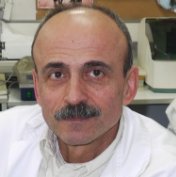
Constantin N. Baxevanis
St. Savvas Cancer Hospital, Greece
Dr. Baxevanis, PhD, is the director of Cancer Immunology and Immunotherapy Center at St. Savvas Cancer Hospital in Athens. He received his PhD from Tuebingen University Faculty of Biology, Max-Planck Institute (Germany, 1980-1983). He has served as a peer reviewer for many granting agencies and publications as well as a guest editor for several scientific journals. Dr. Baxevanis has established several translational research projects aiming at the (i) discovery of prognostic biomarkers; (ii) understanding of mechanisms for immune resistance and immunoediting;(iii) role of tumor mutational burden as predictive biomarker; (iv) discovery of novel immune checkpoint inhibitors; and (v) regulation of antitumor immunity in the tumor microenvironment. He has published more than 170 papers in peer-reviewed journals and 4 book chapters, with an H-Index of 51; i10-index:137; and 10201 citations.
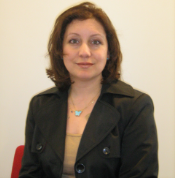
Sophia N. Karagiannis
King's College London, UK
Professor Sophia Karagiannis is a translational B cell and cancer immunologist with academic and biotechnology experience in the USA and UK. Her cancer antibody discovery team focuses on dissecting the crosstalk between human immunity and solid tumours and understanding the impact of antibody isotype on antibody therapeutic efficacy for melanoma, ovarian and breast cancers. Research areas include cancer patient-derived B cells and their expressed antibodies, antibody-engaging immune effector cells such as monocytes/macrophages, NK cells and basophils, and engineering antibodies of any specificity, class/isotype, Fc-optimised antibodies and antibody-drug conjugates. Sophia is a founding member of AllergoOncology, focused on the interface between Th2 immunity, allergy, IgE and cancer, and Secretary of the AllergoOncology Working Group in the European Academy of Allergy and Clinical Immunology. Her group is the first to design and translate IgE class antibodies to clinical testing. She is author of several patents and founder of Epsilogen Ltd, the first immuno-oncology company dedicated to developing IgE-based cancer immunotherapies.
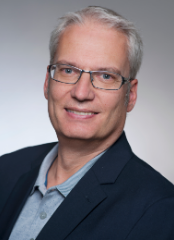
Stefan B. Eichmüller
German Cancer Research Center, Germany
Stefan Eichmüller received his PhD in Biology from the Free University of Berlin in 1994. After postdoctoral training at the Virchow Hospital (Humboldt University Berlin), he joined the German Cancer Research Center in Heidelberg, where he became adjunct professor for Experimental Dermatology at the University of Heidelberg in 2004. He has been working on the identification of tumor antigens and has gained long-standing expertise in the implementation and maintenance of GMP grade cellular vaccine production platforms. Presently he is establishing a pipeline for the GMP-grade ATMP production (TILs, CAR and TCR-transduced T cells) and the generation of synthetic peptides for vaccination. His current fields of research include the role of miRNAs in anti-tumor immune responses and functional reprogramming of tumor associated macrophages. Details can be found on his website (https://www.dkfz.de/gmp).
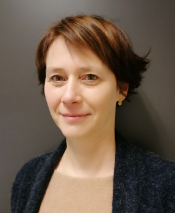
Sigrid Hatse
KU Leuven, Belgium
Dr. Sigrid Hatse graduated as a master in bio-engineering (KU Leuven 1993) and obtained her PhD degree in 1999 at the Rega Institute for Medical Research (KU Leuven). Since 2009, she has a permanent position as a senior researcher (Research Expert) at the Laboratory of Experimental Oncology (KU Leuven). Her extensive laboratory background and broad expertise in modern research technologies are of great value in guiding students and moving research projects forward. She is managing the large biobanking project of the Multidisciplinary Breast Center (MBC) at the University Hospitals Leuven (UZL) and is actively involved in the set-up, coördination and accomplishment of breast cancer clinical trials with associated translational studies. Her main research focuses are breast cancer prognostic/predictive markers and biomarkers of aging in elderly breast cancer patients. As a member of the EORTC Elderly Task Force, the Translational Research Working Group of the International Society of Geriatric Oncology (SIOG) and the Aurora Cancer and Aging Working Group of BIG (Breast International Group), she participates in international consortia dedicated to the investigation of the intriguing multimodal relationship between cancer and ageing.
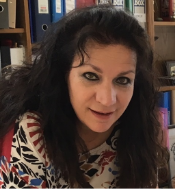
Ourania E. Tsitsilonis
National and Kapodistrian University of Athens (NKUA),Greece
Ourania E. Tsitsilonis is Professor of Immunology at the Department of Biology, National and Kapodistrian University of Athens (NKUA). She majored in Biology, Medicine and received her PhD in Immunology from NKUA. She worked as post-doctoral researcher at the University of Tuebingen (Germany) and at the Department of Immunology, “St. Savas” Cancer Hospital (Athens), where she also performed her Biopathology residency. Since 2016 she established and heads the Flow Cytometry Unit of NKUA. Her main scientific interests focus in the in vitro and in vivo mode of action of biologic response modifiers/adjuvants, and the identification of novel prognostic/predictive biomarkers and immune signatures in plasma cell dyscrasias. She has published 110 original articles, supervised 9 PhD theses, and coordinated/coordinates projects funded by National (Hellenic Ministries of Development, Health, Education, Empirikion and Latsis Foundation, HESMO) and International (European Union, DAAD, NATO) organizations. She was Vice President of the Department of Biology (2015-2022), founder and Secretary General of the Hellenic Society of Immuno-oncology (2015-2022), and since 2019, Adjunct Professor of Tumor Immunology at the European University Cyprus.
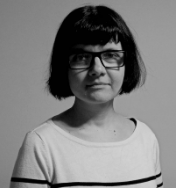
Anna Lewinska
University of Rzeszow, Poland
Anna Lewinska, Ph.D., D.Sc., Associate Professor at University of Rzeszow (Poland), Department of Biotechnology, Group Leader. She is a co-author of over 100 publications in peer-reviewed international scientific journals and two patents (H-index=24, scopus ID 6505583781, https://orcid.org/0000-0001-8055-1918). Her research interests are focused on the biology of cancer and senescent cells, especially genetic and epigenetic factors that affect genomic stability and modulate cell proliferation and cell viability.
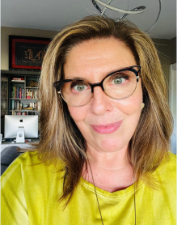
Cristina Bonorino
Federal University of Rio Grande do Sul, Brasil
Cristina Bonorino received an M.Sc. in Genetics and Molecular Biology and a Ph.D. in Immunology from the Federal University of Rio Grande do Sul (UFRGS), Brazil. She has trained in Immunology at the National Jewish Center, in Denver; at the University of Minnesota; and the University of California in San Diego. She is a Fellow of the Cell Stress Society International, and a full Professor at the Federal University of Health Sciences in Porto Alegre, Brazil. Her interests and expertise include the activation of immune responses and the use of immunotherapy in viral infections and cancer.
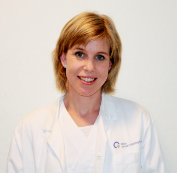
Else Marit Inderberg
Oslo University Hospital, Norway
Else Marit Inderberg leads a research unit performing immunomonitoring in clinical trials and development of cellular therapy at the Dept. of Cellular therapy, Oslo University Hospital. Her main research focus is on T-cell function and therapy development as well as the identification of predictive biomarkers of therapy response. She has broad oncology-related clinical trial experience and holds an MSc equivalent degree in Immunology from France and a PhD in tumour immunology from the University of Oslo, Norway. She has co-authored numerous peer-reviewed publications, holds several patents, and is co-founder of two separate spin-off companies.
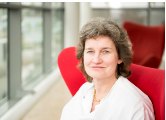
Johanneke Portielje
Leiden University Medical Center, Netherlands
Johanneke Portielje received an MD from Leiden University Medical School. She has been trained in Internal Medicine at Leiden University Medical Center (LUMC) and subsequently in Medical Oncology at Erasmus Medical Center Rotterdam, where she also received her PhD in Medicine. She subsequently practiced oncology in the Hagaziekenhuis in The Hague and is currently professor in Internal Medicine- Geriatric Oncology at LUMC. Her research focuses on improving health outcomes for older adults wit cancer and addresses predictive characteristics that may distinguish those older patients most likely to benefit from a given treatment from those who will not and mechanisms that determine age differences in cancer development and treatment. She participates in the International Society of Geriatric Oncology and is previous board member.
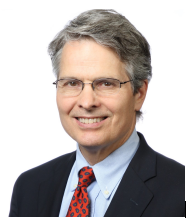
Craig Lee Slingluff
University of Virginia School of Medicine
Dr. Slingluff has 30 years of experience as an independent investigator as a translational immunologist, surgical oncologist, and clinical trialist. His research in cancer immunology and immunotherapy includes laboratory studies and clinical trials that are broadly relevant to development and testing of therapeutic vaccines and other cancer therapies. He has defined human melanoma antigens recognized by T cells, and currently focuses on developing cancer vaccines and combination immunotherapy. He has designed and run more than 25 investigator-initiated clinical trials testing cancer vaccines, targeted therapies, intraoperative imaging, and surgical technology. His primary clinical target is melanoma. His studies have identified promising clinical and immunologic outcomes with peptide vaccines and have enhanced understanding of optimal vaccine adjuvants and the effects of those adjuvants on the vaccine site tissue microenvironment. Current studies also include roles of chemokines and integrins for T cell homing and retention as well as genes associated with lack of immune infiltration.
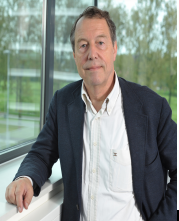
Cornelis Joseph Melief
Leiden University Medical Center Isa pharmaceuticals
Cornelis Joseph Meliefam is emeritus professor of Immunology at Leiden University |Medical Center and Chief Scientific Officer at ISA Pharmaceuticals. He founded this biotech company from my Leiden University research. Major scientific accomplishments include identification of CD4 T cell CD40L interaction with CD40 for delivery of DC activation signals for optimal CD8+ T cell effector and memory formation and development of a synthetic long peptide platform for robust therapeutic vaccination against virus and non-viral targets on diverse cancers.
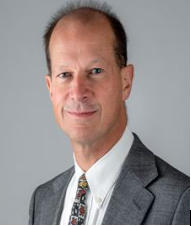
Paul Moss
University of Birmingham, UK
Paul is Professor of Hematology and Deputy Head of the College of Medicine at the University of Birmingham. Professor Moss has a clinical interest in lymphoid malignancy and his research programme is within the immunology of human disease, where he undertakes a range of translational studies within cancer and transplantation. He played a leading role in the development of HLA-peptide tetramers to detect antigen-specific T cells and used these as a novel form of cell therapy. His current research programmes seek to define the immune response to blood and solid tumours and develop novel forms of immunotherapy.

Jean-Ehrland Ricci
INSERM U1065 - Centre Méditerranéen de Médecine Moléculaire (C3M),France
Jean-Ehrland Ricci (DR1 Inserm, HDR) leads the “Metabolism, Cancer and Immune Response” (mCARE) team at Inserm U1065 (Mediterranean Center for Molecular Medicine Research, C3M), Nice, France. He received his master’s degree and his PhD in Molecular and Cellular Biology at the University of Nice Sophia Antipolis, France, where he studied Fas- and T-Cell Receptor-mediated apoptosis in human T cells. Then he joined Dr. Douglas R. Green Laboratory in San Diego for his post-doctoral training where he studied the metabolic regulation of caspase dependent and independent cell death. In 2006, he obtained an Inserm-Avenir grant and since then, he has been spearheading his research team. The team focuses on how metabolism and metabolic enzymes controls signaling pathways, cell death and immune responses in lymphoma and lung cancer, going from pre-clinical models to clinical studies. His main achievements have been to show how chemotherapies or diets can modulate cancer cell metabolism and the anti-cancer immune response.
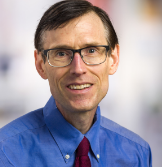
William Grady
Fred Hutchinson Cancer Center, USA
Dr. Grady is a molecular biologist and board-certified gastroenterologist. He is an independent National Institute of Health (NIH) funded principal investigator (PI) with >25 years of experience in translational research related to gastrointestinal cancer.He is conducting studies that: 1) determine the role of the genetic and epigenetic alterations in the initiation and progression of colorectal and esophageal cancer; 2) determine novel treatment approaches to colorectal cancer prevention, 3) identify molecular factors that influence the risk for developing colorectal cancer; 4) develop biomarkers for colorectal cancer, esophageal cancer, and hepatocellular carcinoma; 5) assess the role of age related mechanisms in gastrointestinal cancer formation; and 6) investigate tissue microenvironment factors that affect cancer initiation and progression.
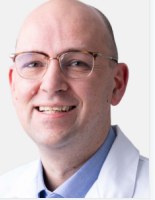
Marcus Vetter
Cantonal Hospital Baselland, Switzerland
PD Dr Marcus Vetter is a medical oncologist trained in Basel Switzerland (University Hospital) and United Kingdom (Royal Marsden Hospital, London). He is dedicated breast oncologist and gynecologic oncologic Specialist and the head of the department of hematology, oncology and immunotherapy Cantonal hospital Baselland, Medical University clinic Baselland. His research is focused on optimizing breast cancer treatment, treatment of gynecologic cancer and studies in the field of geriatric oncology. Dr Vetter is core member of the SAKK breast Cancer project group and member of Several in international associations: SIOG, SAKK, IBCSG, ESMO and FMH. Since September 2023, he is appointed to the director of the breast cancer project group in the SAKK. He published more than 50 peer-reviewed articles in the field of oncology.

Jun Luo
Department of Urology, Johns Hopkins University, USA
Jun Luo, Ph.D., is the Alan W. Partin Professor of Urology at the Johns Hopkins University School of Medicine. He has studied the problem of prostate cancer for two decades. His research lab housed in the Brady Urological Institute now focuses on the use of genetic and genomic approaches, coupled with non-invasive sampling strategies, for biomarker discovery, translation, and clinical implementation. In addition, multiple ongoing studies in his laboratory are designed to address the disproportionate burden of prostate cancer in Black men using noninvasive early detection methods. His lab is also leading intensive clinical and functional studies of a germline mutation affecting risk for prostate cancer in men of African ancestry. Dr. Luo is a member of the National Cancer Institute Prostate Cancer Task Force, and serves on many other organizational research committees. He has published over 100 articles on prostate cancer and is the lead inventor of multiple prostate cancer biomarker patents held by the Johns Hopkins University.
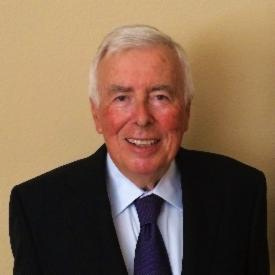
Robert De Jager
Robert De Jager graduated from the medical school of the Free University of Brussels, Belgium and did his post-graduate training at Lenox Hill Hospital (NYC), the Mayo Clinic (Rochester, MN: Internal Medicine) and the Memorial Sloan Kettering Cancer ( NYC: Medical Oncology and Clinical Pharmacology). He is board-certified in Internal Medicine and Medical Oncology and a Fellow of the American College of Physicians. He has been on the staff of the Memorial Sloan Kettering Cancer (NYC), the Institut Jules Bordet (Brussels/Belgium), the Institut de Cancer et d’Immunogenetique (I.C.I.G./Paris/France), the University of Medicine and Dentistry of New Jersey (UMDNJ) and the MD Anderson Cancer Center (Houston TX). His pharmaceutical appointments included Sanofi Research (Paris/Toulouse), the Biotechnology Research Institute (AkzoNobel); Rockville MD), R-Gene Therapeutics (Houston, TX) and Daiichi Pharmaceuticals (Montvale, NJ). He is currently consultant in the division of Neuroimmunology, Columbia Presbyterian Medical Center (NYC), chief medical consultant of Learn and Confirm Inc., Montreal, Canada and consultant and chief medical officer, Da Zen Theranostics Inc., San Jose, CA. His research areas of interest are translational oncology, targeted metabolic inhibitors, biomarkers, pilot pre-clinical and clinical trials with a focus on drug induced cross-resistance and cross-sensitisation in the context of aging in pancreatic cancer and gastrointestinal tumors. He does contribute to the design of a BCG vaccination trial in multiple sclerosis.
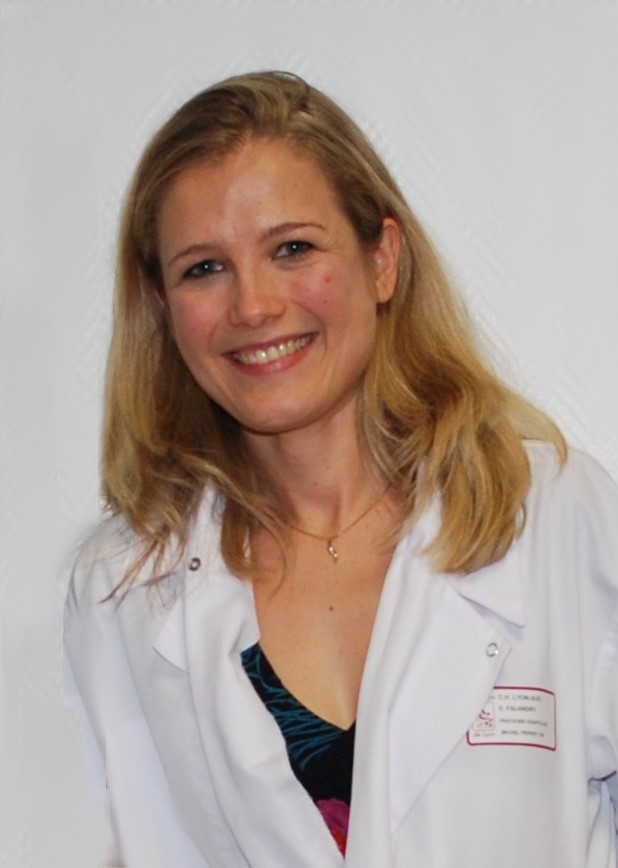
Claire Falandry
Claire Falandry, MD, PhD is medical oncologist, Professor in Geriatrics in Lyon University France.She was graduated in 2008 with a PhD in Molecular Biology on “Epigenetic and telomeric regulations”. She acquired a post-doctoral experience in the Institute of Molecular Medicine and Max Planck Department on Stem Cell Aging in Ulm, Germany. She was the scientific coordinator of several trials of the GINECO (Groupe d’Investigateurs Nationaux pour l’Etude des Cancers de l’Ovaire et du sein, a French collaborative group of investigators) dedicated in the analyses of the impact of geriatric covariates on the outcome of elderly (≥70) patients treated for breast or ovarian cancer.
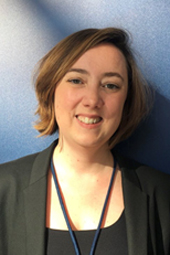
Capucine Baldini
Drug Development Department (DITEP), Gustave Roussy, Villejuif, France
Dr Capucine Baldini is a medical oncologist working as the head of the outpatient unit at the Drug Development Department (DITEP), Gustave Roussy, Villejuif, France. She is involved in early phase trials with a special interest in geriatric oncology and tumor agnostic clinical trials. She received her medical degree from Lille 2 University in 2014 and got a MSc from PARIS XI University in 2013. She was an Assistant Professor at Lille University Hospital with a specialisation in geriatric oncology and at Gustave Roussy in early phase trials at DITEP. She is currently a PhD student working on immunosenescence and clonal hematopoiesis. She is the principal investigator of 15 early phase clinical trials and a (co)author of several publications in peer reviewed journals. She is a member of ESMO, ASCO, AACR, SIOG, SoFOG and involved in SoFOG interest group leadership.
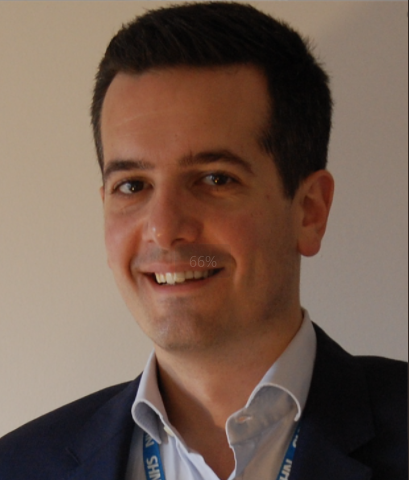
Nicolò Matteo Luca Battisti
The Royal Marsden NHS Foundation Trust
Dr Nicolò Matteo Luca Battisti is a Consultant Medical Oncologist in the Breast Unit of The Royal Marsden NHS Foundation Trust, London, UK, where he is also Clinical Lead of the Senior Adult Oncology Programme. His main clinical and research interests are breast oncology and geriatric oncology. His main areas of investigation are comorbidities, comprehensive geriatric assessment, quality of life and prediction of anticancer treatment toxicity in older patients with cancer. He authored several publications and book chapters in the fields of geriatric, breast and thoracic oncology.

Efthymios Papadopoulos
Louisiana State University
Efthymios Papadopoulos is an Assistant Professor in the School of Kinesiology at Louisiana State University. He completed his undergraduate degree in Physical Education and Sports Science at Aristotle University of Thessaloniki (Serres, Greece), and earned an M.Sc. in Applied Health Sciences from Brock University (Saint Catharines, Canada). He obtained his PhD in Kinesiology from the University of Toronto and completed postdoctoral work in geriatric oncology at the University Health Network (Toronto, Canada). His research aims to understand the impact of body composition on disease outcomes in older adults with cancer, as well as the effects of multimodal lifestyle strategies (e.g., exercise and diet) on cancer-specific outcomes and patients’ symptoms.
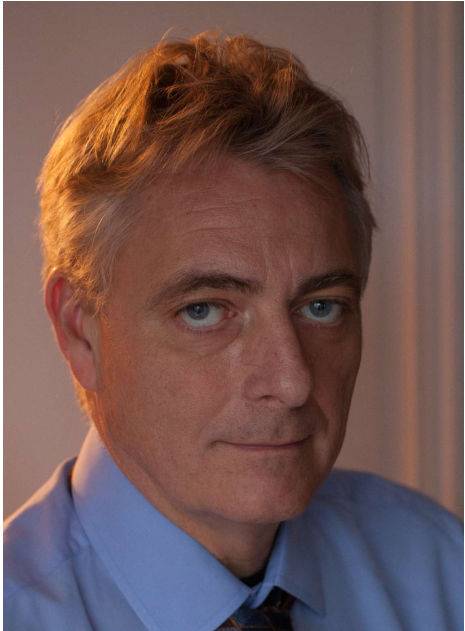
Guido Kroemer
Université de Paris Cité
Guido Kroemer is currently Professor at the Faculty of Medicine of the University of Paris Cité, Director of the research team "Metabolism, Cancer and Immunity" of the French Medical Research Council (INSERM), Director of the Metabolomics and Cell Biology platforms of the Gustave Roussy Comprehensive Cancer Center, and Hospital Practitioner at the Hôpital Européen George Pompidou, Paris, France. Dr. Kroemer’s work focuses on the pathophysiological implications of cell stress and death in the context of aging, cancer and inflammation.
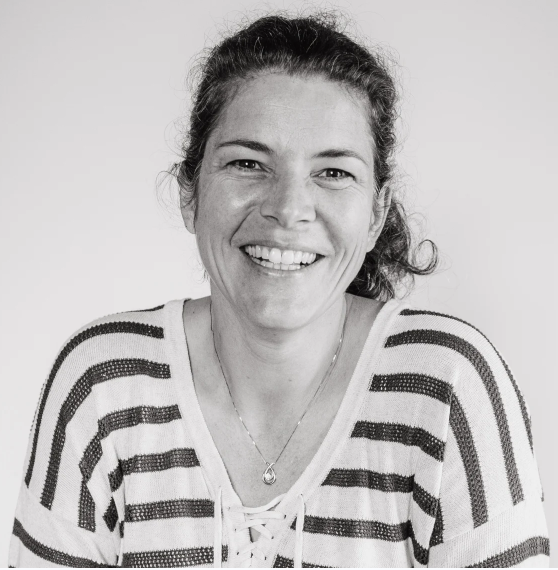
Sophie Pilleron
Luxembourg Institute of Health
Sophie Pilleron, MPH, PhD, is an epidemiologist specializing in both ageing and cancer. She leads the Ageing, Cancer and Disparities (ACADI) Research Unit, within the Department of Precision Health at the Luxembourg Institute of Health. Her research aims to describe cancer burden in older people and to improve cancer outcomes in older adults with cancer. She is a WHO-International Agency for Research on Cancer (IARC) alumnus and a Marie Skłodowska-Curie Actions alumnus. She has been an elected member of the governance board of the Nursing and Health Allied interest group of the International Society for Geriatric Oncology (SIOG) since 2020, and a vice-chair of the International Cancer Benchmarking Partnership (ICPB) Inequalities network since 2022. She is also a member of the Cancer and Aging Research Group (CARG) Health Services Core. She won the distinction of the 2021 SIOG Nursing & Allied Health Investigator Award and the 2022 SIOG Young Investigator Award, annual awards dedicated to promoting research in the field of geriatric oncology and supporting the career development of the new generation of experts. In 2024, she won the Legs Kanning Award for her career on cancer.
Yue Zhao
University Hospital of Cologne, Germany/China
With over 18 years of experience in translational cancer research, with a major focus on cellular plasticity and therapy resistance, cancer and aging-associated biomarkers in gastrointestinal cancers, I have published over 70 articles in peer-reviewed journals and have an H-index of 32. I have also acted as a peer reviewer for many journals and have been awarded research funding from the European Commission, Wilhelm Sander-Stiftung, etc. I have been active in scientific communities including: SIOG (International Society of Geriatric Oncology) and CARG (Cancer and Aging Research Group), ESBB (European, Middle Eastern & African Society for Bio preservation and Biobanking), the German Stem Cell Network, European and German Pancreas Club (EPC/DPC), American Association for Cancer Research (AACR); German Cancer association (DKG); European Association for Cancer Research (EACR) etc.

